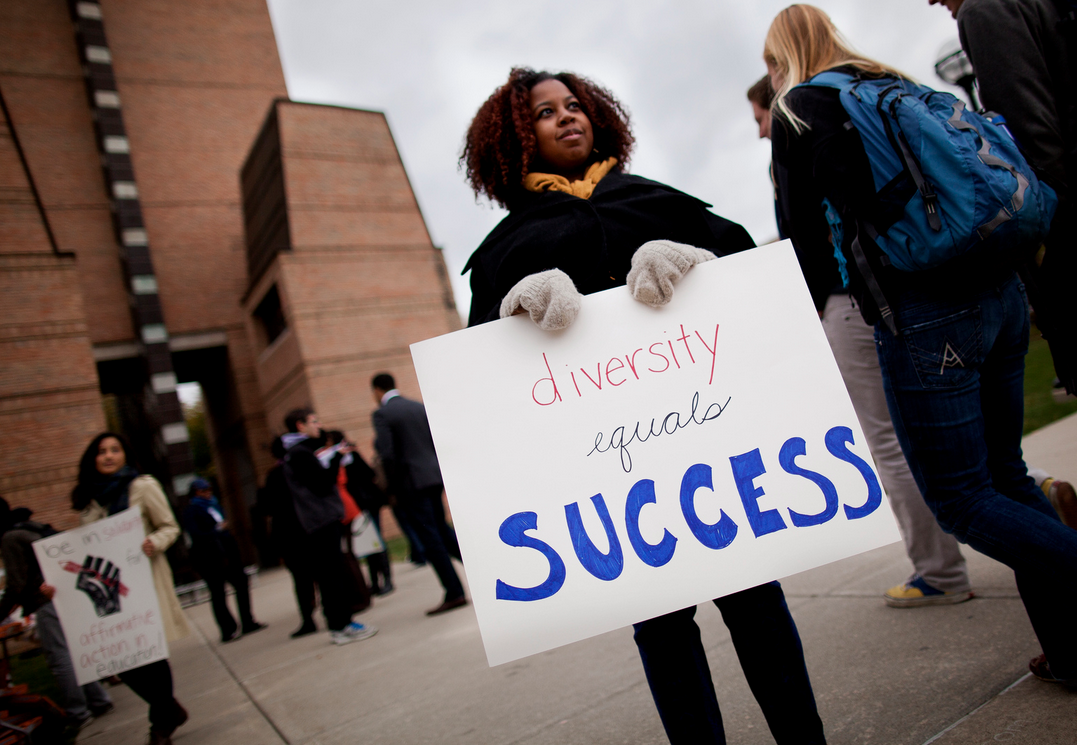
Aryelle Berry, a member of the Michigan Black Law Student Association at the University of Michigan, protests the Supreme Court's affirmative action ruling last year (Joseph Xu/ University of Michigan).
Affirmative action cases at the Supreme Court have always dealt with some version of the question,"is affirmative action constitutional?"
However, in the latest case making headlines, that question is flipped on its head. Instead of asking whether affirmative action is allowable under the Constitution, Schuette v. Bamn asks if it's ok that a state ban affirmative action. And the answer is, yes.
Here's the chain of events:
In 2003, the Supreme Court decided that the University of Michigan's undergraduate admissions policy, which used a point-based and quota-based system of racial classification, was not constitutional. At the same time, the Supreme Court also decided that Michigan law school's admissions policy, which used race holistically as one of many factors, was constitutional.
The take-away? Giving race a specific point value in the admissions policy was not allowable, but having it as one of many factors that was a general benefit was.
In response, the people of Michigan voted to change their state constitution. In a ballot initative that passed in 2006, the state prohibited the use of race-based preferences of any sort as part of the admissions process for all Michigan state universities.
"The University of Michigan, Michigan State University, Wayne State University, and any other public college or university, community college, or school district shall not discriminate against, or grant preferential treatment to, any individual or group on the basis of race, sex, color, ethnicity, or national origin in the operation of public employment, public education or public contracting."
That ballot initiative is what was the subject of the latest Supreme Court’s 6-to-2 ruling - and what the Court decided is constitutional. Voters in a given state can decide for themselves whether a policy of race-based preferences can be used in their state. Justice Kennedy wrote the plurality decision.
"Michigan voters exercised their privilege to enact laws as a basic exercise of their democratic power, bypassing public officials they deemed not responsive to their concerns about a policy of granting race-based preferences."
What does this mean for affirmative action nation-wide? Nothing new.
Instead, it explicitly legitimizes the process that has already been occurring in states like California and Florida – where legislatures are deciding that they don't want affirmative action policies used at their public schools.
"While this case arises in Michigan, the decision by the State's voters reflects in part the national dialogue regarding the wisdom and practicality of race-conscious admissions policies in higher education."
So no, the Supreme Court did not just kill affirmative action. But the people can if they want to, and this Supreme Court won't stop them.
Watch Brandeis University president discuss the ruling on Greater Boston:










